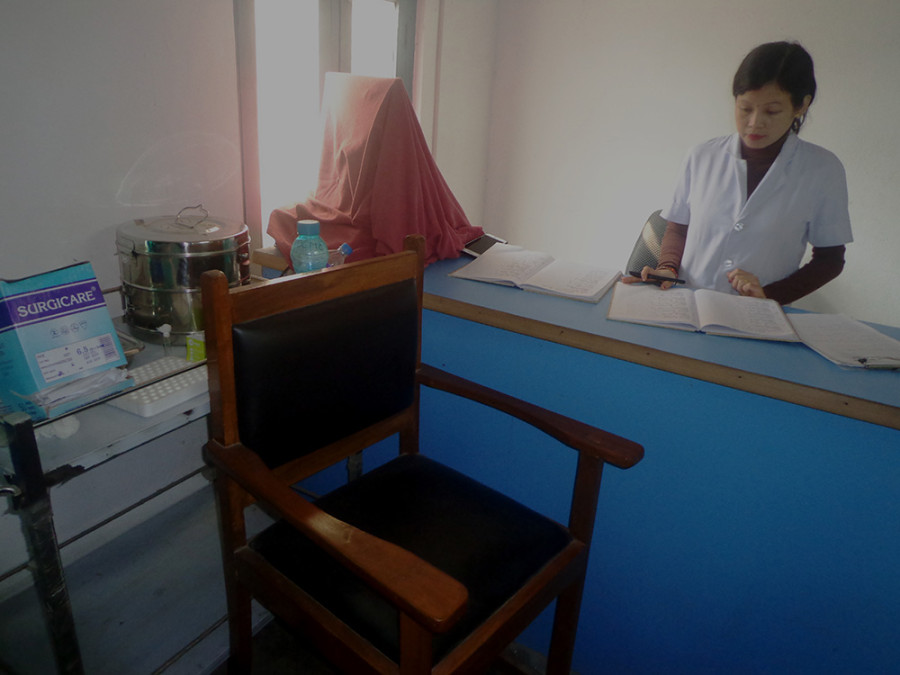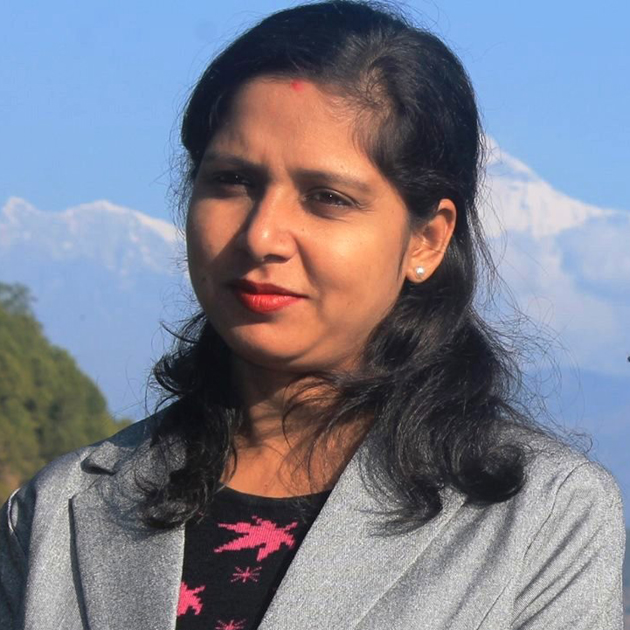Lumbini Province
Lumbini Provincial Hospital’s One-stop Crisis Management Centre is crippled by lack of infrastructure and staff
Victims of gender-based and domestic violence say they face a hard time whenever they visit the centre, with no one available to listen to them.
Amrita Anmol
But the centre is currently languishing, with the hospital management neither giving the facility the required attention nor the publicity.
Sabitri, a victim of domestic violence, visited the crisis management centre on Wednesday, seeking medical treatment and legal support. When she asked health workers at the emergency ward where the centre was, they had no clue.
“I explained to them that there should be a centre which provides help to victims of domestic and sexual violence,” Sabitri told the Post. She preferred to reveal only her first name in order to protect her privacy. “I was told to contact the hospital administration. The administration asked me to wait in a room near the labour ward. I waited for about an hour; nobody came. The hospital staff did not know what to do with me. They didn’t even know that the hospital had such a facility.”
Usually, survivors of domestic and sexual violence are referred to the centre by police, but they can also directly reach such centres. Here they often face difficulties due to the lack of awareness even among those who are supposed to operate the facility.
Puja, a resident of Milan Chowk, went through a similar experience when she visited the centre on December 2, 2019. She had a letter from the Area Police Office, roamed inside the hospital and kept looking for health workers, for nearly two hours.
“They did not care about me even after I showed the letter from the police,” said Puja. “It was difficult to find a nurse. It took a lot of time for the doctor to come and provide treatment.”
Jamuna Panthi, the focal person of the centre, agrees that the centre has not been able to provide the services needed by the victims. According to her, a major reason behind this apathy is “lack of awareness among the health workers”.
“The centre does not have staff who understand the purpose of running such a centre,” said Panthi. “They don’t know the guidelines and they are not trained specifically to run the centre. Only when a patient has a reference letter from the police does the staff come forward to help them.”
Lack of qualified and dedicated personnel and minimum facilities in terms of infrastructure is another major reason why the victims have a hard time availing of the services.
According to the One-stop Crisis Management Centre manual, the centre must have one medical officer, three staff nurses, one psycho-social counsellor, one facilitator, one woman police sub-inspector or assistant sub-inspector and a volunteer who is appointed in coordination with the local non-government organisations working in the field of violence against women.
However, the provincial hospital’s centre only has a physician who is on-call duty and two nurses who are also assigned other hospital duties, but absolutely no staff required for the operation of the centre.
Sunita, 16, of Devdaha, Sukrauli, is a rape survivor. When she reached the centre for an abortion earlier last month, she immediately started regretting.
“It was very difficult; I did not know who I should first speak to. There was no one to listen to me and understand my problem. Nor was there any doctor to address my problem,” said Sunita, whose last name the Post decided against mentioning for privacy reasons.
Moreover, the centre lacks the minimum facilities for operation, which include three dedicated rooms for treatment and examination, an office, a guard room and a toilet. Though the provincial hospital is one of the well-equipped facilities in the region, it has not prioritised One-stop Crisis Management Centre (OCMC) services. At the moment, the abuse victims are admitted, examined and given counselling in a dreary old room, with a broken window.
Other necessary facilities like furniture, laboratory equipment and amenities like computer, printer and a telephone and curtains to maintain the confidentiality of the victim during forensic examination are also missing.
“The centre lacked the privacy I needed in order to express myself. It was difficult to answer the questions when so many people were around in a single room,” said Sunita.
As per the hospital data, on average, 15 service seekers visit the OCMC every month, a majority of them minors and young girls who have been sexually abused or raped. A majority of the women who visit the facility are victims of domestic abuse, according to the hospital.
Dr Rajendra Prasad Khanal, the medical superintendent at the hospital, conceded that the OCMC has not been as effective as it should have been.
“It’s largely because of the weak physical infrastructure at the hospital as well as the lack of a wide range of services that a regional hospital needs to provide for the victims on a day-to-day basis,” Khanal told the Post.
Women’s rights activist Gyanu Poudyal said the dire state of the centre has been an obstacle in providing justice to the victims of sexual abuse and gender-based violence. “The centre, by not being able to provide information, service, counselling and help to the victims has made delivering justice to the victims much more difficult,” said Poudyal.




 9.83°C Kathmandu
9.83°C Kathmandu















